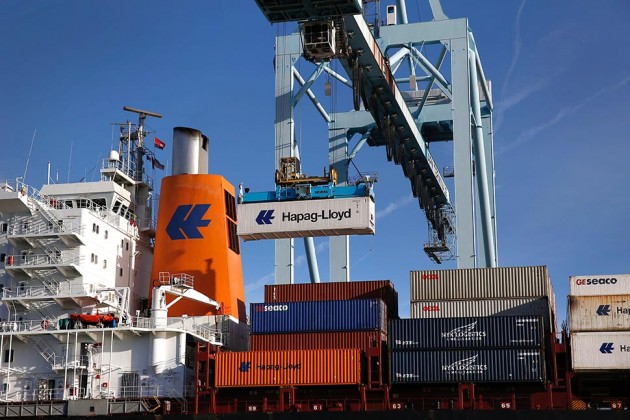- FG Targets 7% Growth With Economic Recovery Plan
The Federal Government, through the National Economic Recovery Growth Plan, is targeting a growth rate of seven per cent between 2017 and 2020.
The Minister of Budget and National Planning, Senator Udo Udoma, disclosed this at a meeting with select joint committees of the National Assembly as part of consultations towards packaging a strategic and all-inclusive economic policy document.
He said the need for the plan and its effective implementation was more imperative, given the current state of the nation’s economy.
The minister, according to a statement from his Media Adviser, Mr. Akpandem James, pleaded that every effort must be made to ensure that the new plan eventually did not suffer the fate of those before it.
To ensure that the NERGP does not go the way of others, he stated that the government was putting in place a delivery unit that would drive its implementation through effective monitoring and evaluation.
Udoma explained that the plan was structured in such a way that it would be the basis for all subsequent budgets, which was why the contribution and support of the National Assembly was very critical to ensure the effective realisation of its objectives.
The NERGP focuses on five broad areas namely: macroeconomic policy, economic diversification and growth drivers, competitiveness, social inclusion and jobs, and governance and other enablers.
The minister said, “This plan builds on the previous development plans the country has developed, particularly the Vision 20-2020. The development of this plan is part of a process we have been working on since we came into government.
“However, the fact that we are in recession means that the plan is one that must also be designed to get us quickly out of recession. Our goal is to have an economy with low inflation, stable exchange rates and diversified inclusive growth.
“The proposed initiatives prescribed by the plan address the country’s poor competiveness, and are designed to improve the business environment and attract investment in infrastructure. Jobs and social inclusion are also key deliverables of the plan.”
In a related development, Udoma said during a meeting with the United Nations Development Programme Regional Director for Africa, Mr. Abdoulaye Mar Deiye, in Abuja, that although the country was focused on diversification of its economy, it needed oil to get out of the oil-propelled economy.
He said Nigeria’s immediate priority was to get oil production output back to the desired level to secure revenue needed to diversify the economy.
The minister explained that though the global slump in oil prices introduced some shocks that affected the country’s economy, the immediate reason for the slump into recession was the massive reduction in output caused by militancy in the oil-bearing Niger Delta region.
…to capitalise agriculture bank with N1tn
The Federal Government is planning to capitalise the Bank of Agriculture with N1tn and will allow the lender to take deposits as the country seeks to boost farming output and reduce food imports.
“We are looking at 25 million farmers as stakeholders or depositors,” the Minister of Agriculture and Rural Development, Chief Audu Ogbeh, said in an interview held in Abuja.
“We are probably going to take a major step by the end of this year, and by February or March, have a structure in place for the changes we want to carry out,” Ogbeh told Bloomberg.
The Nigerian economy contracted in the first nine months of the year as oil output, the government’s main source of revenue, dropped due to attacks by militant groups on pipelines in the Niger Delta, and prices remained low.
Farming, which mostly consists of crops, including cocoa, accounts for more than 25 per cent of Nigeria’s Gross Domestic Product, and has expanded every quarter of 2016, while factory output and mining, which includes the oil industry, shrank, according to the National Bureau of Statistics.
The BoA will start lending for farming projects at an interest rate of less than 10 per cent, or less than half of commercial market rates, Ogbeh said.
The bank, created in 1972 to provide credit and technical support to farming projects, lent at least N41bn to 600 businesses across Nigeria over 10 years, according to information on its website.
“It’s good to invest in the bank, but they should ensure they have proper management to improve its performance and efficiency,” the Division Head for Agriculture at Fidelity Bank Plc, Musa Tarimbuka, said by phone. “They have disbursed a lot of money over the past 40 years, and the non-performing loans are very high,” he added.
The Central Bank of Nigeria kept its benchmark rate unchanged at 14 per cent on November 24 as it seeks to support an economy forecast by the International Monetary Fund to contract by 1.7 per cent this year.
It’s also trying to curb inflation, which quickened to an 11-year high of 18.3 per cent in October. Food prices rose 17.1 per cent from a year earlier, partly due to the high price of imported food after the naira lost almost 40 per cent of its value against the dollar following the abandonment of a currency peg in June.
The government plans to distribute 110 rice mills across the country over the next two months at a subsidy of 40 per cent, Ogbeh said. These measures will help boost production and reduce food imports, which were worth about N1.2tn last year, according to statistics bureau data.

 Forex3 weeks ago
Forex3 weeks ago



 Naira2 weeks ago
Naira2 weeks ago
 Billionaire Watch2 weeks ago
Billionaire Watch2 weeks ago




 Naira2 weeks ago
Naira2 weeks ago




 Naira2 weeks ago
Naira2 weeks ago






 Naira4 weeks ago
Naira4 weeks ago


 Naira1 week ago
Naira1 week ago






 Naira4 weeks ago
Naira4 weeks ago






















